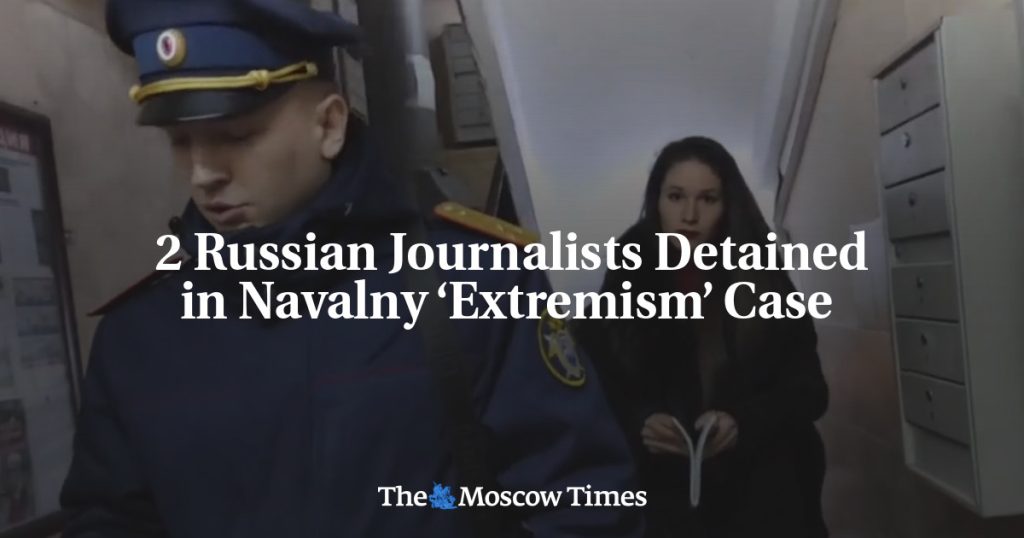Russian police recently detained two independent journalists on “extremism” charges in connection with a criminal case involving late opposition activist Alexei Navalny. Antonina Favorskaya, a photojournalist with Sotavision, was detained for a second time after serving a 10-day administrative sentence for disobeying police orders. In a separate incident in Bashkortostan, RusNews reporter Olga Komleva was also detained on similar charges, initially as a witness in the Navalny case but later as a suspect. Komleva had previously volunteered at Navalny’s campaign office in Ufa.
Favorskaya is known for covering Navalny’s court hearings and filming the last known video of the Kremlin critic before his death at an Arctic penal colony on February 16. She was also present at Navalny’s funeral in Moscow before being detained at a cafe based on an anonymous tip and jailed for “disobedience” for 10 days. According to reports, Favorskaya is suspected of working for Navalny’s Anti-Corruption Foundation, which was declared “extremist” by Russian authorities in 2021, putting its employees, volunteers, and supporters at risk of criminal prosecution.
In addition to Favorskaya and Komleva, at least four of their colleagues were also detained overnight, with one reporting that he was beaten while in police custody. The specific charges against these individuals remain unclear, but the crackdown on independent journalists and Navalny supporters is seen as part of a broader effort by Russian authorities to suppress dissent and opposition to the government. The actions taken against these journalists have raised concerns about press freedom and the right to report on issues that are critical of the government.
The detention of Favorskaya and Komleva comes amid increased pressure on independent media outlets in Russia, where journalists often face harassment and legal challenges for their reporting. The use of “extremism” charges to silence critical voices has become a common tactic by Russian authorities to stifle dissent and limit the spread of information that is not in line with the government’s narrative. The targeting of journalists who have covered Navalny and his activities is seen as part of a wider crackdown on opposition figures and supporters in the country.
The detention of Favorskaya and Komleva has sparked international condemnation, with press freedom organizations and foreign governments calling for their release and expressing solidarity with independent journalists in Russia. The treatment of journalists in the country is seen as indicative of the broader human rights situation and the restrictions on freedom of speech and assembly. The use of violence and intimidation against reporters covering sensitive topics is a violation of international norms and has led to concerns about the safety and security of journalists working in Russia.
As the crackdown on independent journalists and opposition activists in Russia continues, the international community is closely monitoring the situation and calling for respect for press freedom and human rights. The cases of Favorskaya and Komleva highlight the risks faced by journalists reporting on sensitive issues and the challenges of maintaining independent and critical journalism in an authoritarian environment. Despite the challenges, many journalists in Russia are committed to upholding the principles of a free press and providing information to the public, even in the face of threats and intimidation from the authorities.


